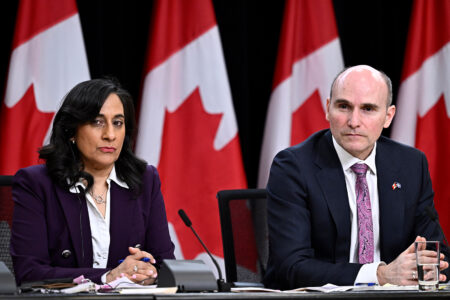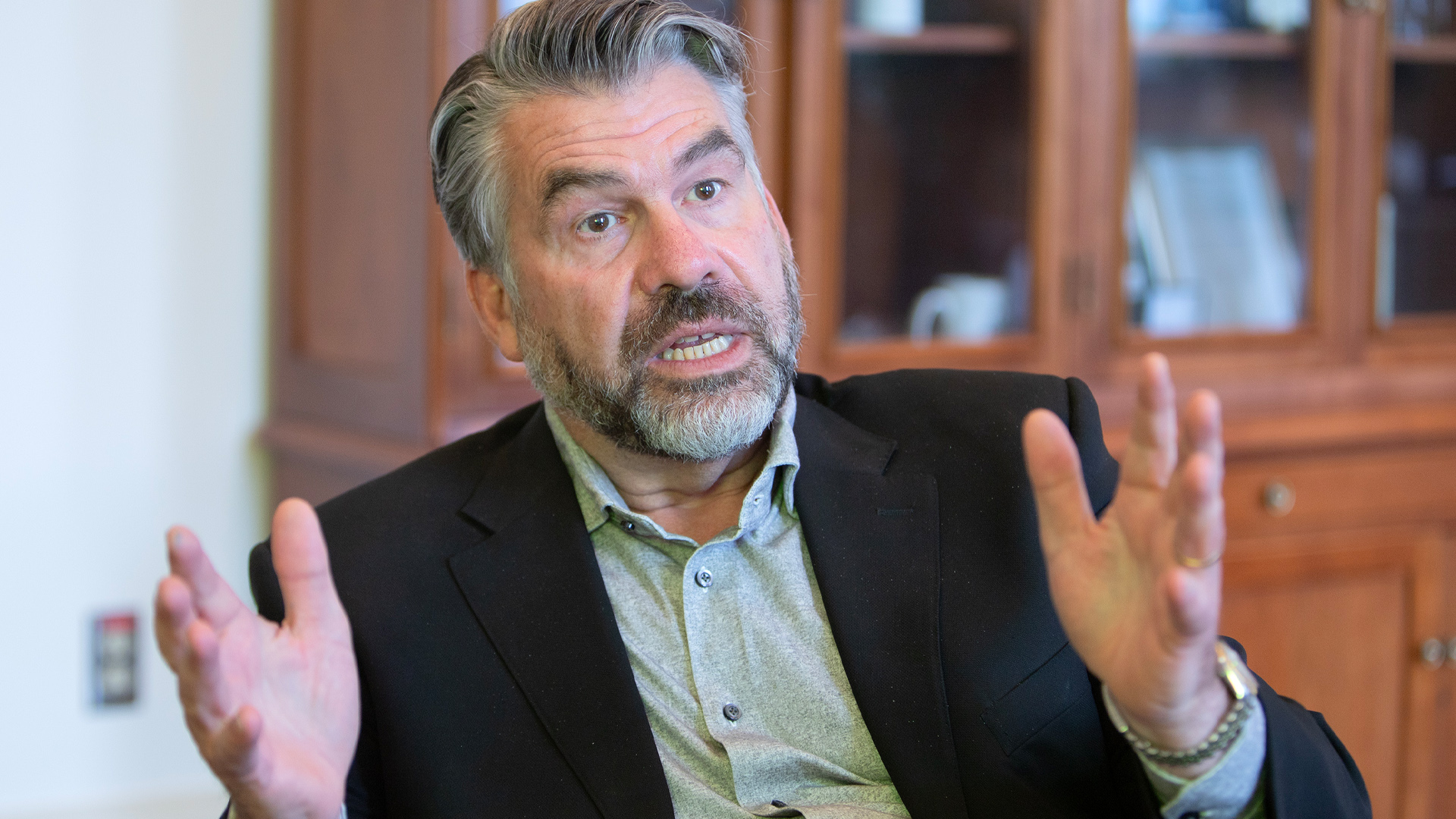
In October, John Hannaford, clerk of the Privy Council, launched a task force of deputy ministers to review the complex issue of values and ethics in the federal public service.
“The intention is not to reinvent the values and ethics code,” he said at the time. Past principles “are relevant in a number of different contexts – but we have a different context today – we are in a more complex space.”
The task force report, released in December, noted several key challenges contributing to that different context – a large and rapid influx of new public servants, new ways of interacting and building shared values in a hybrid work environment, the prevalence of social media, the drive for inclusivity and generational differences.
Those are major challenges for the public service if it is to ensure that it meets its obligations and retains public trust.
To do so, new ways must be developed to better train and socialize new public servants, encourage ethical leadership to strengthen the code of conduct and encourage its integration into public service culture, especially in this changing environment.
The last time the public service addressed values and ethics seriously was the 1995-96 task force led by John Tait, who produced the report, A Strong Foundation, which informed the development of the public service values and ethics code.
As expected, the ethics terrain has shifted since that time. Ethical breaches are being reported more frequently in the mainstream media. Why? Is the public service more sensitive to breaches or are these cases somehow different than in the past?
These questions raise an even more difficult question: what are the drivers behind these incidents and do they point to a need to reassert core ethical values?
Several noteworthy ethical breaches
Ethical breaches are nothing new. Various commissions have examined questionable ethical behaviour over time. Some breaches were well-publicized while others remained obscure.
One current case involves a senior analyst at the Privy Council Office (PCO) who accused Canada and other countries on social media of aiding Israel in “war crimes and crimes against humanity” in the aftermath of the Hamas attacks in October.
This raises the issue of whether there are, or should be, tougher limits on the use of social media by public servants to express personal opinions publicly regarding federal policies.

Another case that was the subject of a recent auditor general report concerns the development of the ArriveCAN app. The case is trickier and yet unclear but appears to relate to issues around procurement rules and potential mismanagement.
What was particularly unusual was two senior officials from the Canada Border Services Agency accusing each other publicly of impropriety when they appeared before the Commons operations committee.
Within the traditions of Westminster government, this jeopardizes the desired anonymity of public servants. It may be usual for public servants to testify publicly, but it is not expected to see them accuse each other publicly of mismanagement.
Another case involves a senior RCMP intelligence official who violated the Security of Information Act by disclosing classified material to foreign powers. In addition, a former employee of the Canadian Space Agency was accused of “using his status as an engineer at the Canadian Space Agency to negotiate satellite station installation agreements with Iceland on behalf of a Chinese aerospace company.”
These incidents raise questions about not only criminal behaviour but also loyalty to Canada.
Finally, another investigation was launched by the Canada Revenue Agency into about 600 of its employees who claimed the Canadian emergency response benefit (CERB) during the COVID-19 pandemic. Of those investigated, 185 have been terminated since December for fraudulent claims.
This raises questions about fraudulent behaviour related to maintaining public trust.
Raising important challenges
There are critical assumptions that underlie issues of ethical behaviour – a common vision of values and ethics; collective standards of behaviour that are agreed upon and accepted; and a commonality of purpose in an institution with 375,000 members across the country.
Do these assumptions still hold true?
The December task force report sheds light on current issues as perceived by a selection of public servants. It is limited in scope, anecdotal and conveys opinions, perceptions, beliefs and unfulfilled expectations from selected individual quotes.
Therefore, the report can only infer that the public service is facing significant challenges vis-à-vis the practice of ethics or even in achieving a common understanding of ethical conduct.
The report offers no clear answer but it does touch on issues of the bureaucratic environment, including digital transformation and use of social media; increasing misinformation and disinformation clouding ethical judgment; shifting public service composition and demographics (e.g., anti-racism, diversity, accessibility, official languages); and work arrangements that test institutional cohesion.
How can this be interpreted?
Public service values can be imposed or they can emerge organically over time. Either way, sound ethical judgement must be socialized but in different ways.
The risk involved in the former is that the selection of values can create friction because they may not be collectively shared, in which case a culture of enforcement may be necessary.
The second, which represents the natural emergence of values, takes time and effort. They need to be socialized, discussed and tested through, for example, understanding ethical dilemmas.
In the current federal context, apart from the new rules imposed through different governmental initiatives to counter all sorts of discrimination, many of the challenges arise and extend from generational shifts in the understanding of ethics, integrating an increasing number of immigrants and their views, and the role of technology in forming these views.
In other words, both forms are occurring simultaneously.
Generational shifts in ethical judgment are testing commonly held understandings
Generations usually think about ethics differently, especially as they relate to their personal values relative to those who came before. Although institutional and practice codes extend from commonly held collective values, personal values extend from the subjectivity of individuals and their beliefs.
These push and pull relationships can change over time, which has implications for public service values and ethics because often these cannot be anticipated.
First, new recruits may not hold the same beliefs as public servants from previous generations.
Several examples were given in the report but one was quite explicit on this issue: “The notion of respect for people may have been very different 30 years ago. We need to ensure and foster a positive and inclusive workplace. An example of this is providing accommodations for trans or non-binary people, such as gender-neutral bathrooms.”
Normally, training programs are used as a vehicle to help newcomers understand, learn, and embrace expected behaviours. These programs attempt to bridge generational understandings – an issue that the task force report highlighted.
Newcomers want to work differently, which may butt up against previously accepted norms of hierarchy and onsite command-and-control bureaucracy.
Expectations of inclusivity have also shifted, such as how to accommodate or embrace Indigenous approaches to work, which may conflict with hierarchical and top-down authority. Equally, respect for diversity within the public service is testing previously held notions of respect and fairness.
Social media is pushing the boundaries of appropriate communication
Some public servants, especially younger ones, believe they ought to be able to express their personal views publicly on all matters through formal and informal means. This violates the anonymity principle of public servants, although for many that has long been a myth.
Doing this also raises questions about public confidence in the public service to be impartial, fair and even-handed in public decision-making.
Loyalty and impartiality may also be at stake if the personal opinions of public servants, when made public, diverge from governmental policies. Collective agreement is needed on what would replace anonymous service as a co-ordinating principle.
Accommodating new immigrants is challenging traditional ethical standards
Canada has welcomed a significant number of immigrants over the last decade, which has changed the complexion of Canadian society and, by extension, the face of new public service appointments.
Immigrants are joining Canadian society at various stages in their lives and will not necessarily have been socialized through Canadian institutions and Canadian values, beliefs and allegiances before joining the public service.
Their behavioural norms may have been informed by their own culture rather than through Canadian institutions and practices.
For instance, in some cultures, it is the norm to give and accept gifts of significant value when meeting colleagues, private sector representatives or dignitaries. In Canada, it is more structured and regulated. Both sets of values and beliefs will influence each other over time, which will create new understandings of values and ethics.
As expected, time will be needed to properly work out and maintain cohesiveness.
For the public service, the major challenge is this: how to maintain a balance between the expected behaviour of public servants according to a homogenized code of values and ethics that may have shifted, and demographic and attitudinal changes of new recruits that may be in conflict because core values have radically shifted in important ways.
Moving from task force reflections to action
The task force concluded that to improve the public service’s sense of values and ethics, it must reinforce these key messages:
- The public service is a calling to be professional and nonpartisan.
- Public trust is earned, which means holding to core values.
- Respect for people means that workplaces are to be physically and psychologically safe.
- Public servants must be held to account for poor behaviours.
- All public servants must expect that the code of values and ethics will be applied consistently through ethical leadership.
There are two ways to influence values and ethics that contribute to a common public ethos for public servants.
First, existing formal codes may need to be revised to adapt to new realities. For instance, consequences for ethical breaches may have to be clarified and made more severe to discourage unwanted behaviour.
Second, training and socialization will have to be revisited. New ethical dilemmas must be identified and discussed openly through formal and informal training activities in a way that stimulates collective understanding.
This creates conditions for public servants to expose different understandings and come to a consensus on collective strategies for mitigating ethical risks.
A modern approach would encompass building a strategy that suits the requirements of a 21st-century work environment characterized by new technologies and remote work arrangements.
The task force report must be reinforced with definitive action on ethical leadership and communications that send clear messages about the essential core values for serving the public good.










